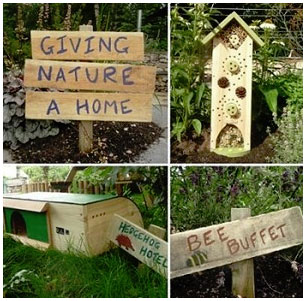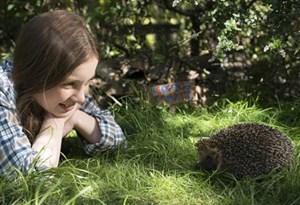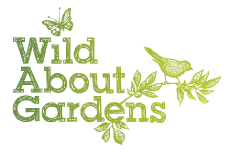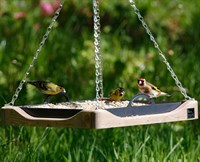Gardening for Wildlife
From window boxes to log piles and meadow areas, all habitats are important for wildlife. Whether you want to make the most of what you already have, or want to create more habitats, we can signpost you to the relevant information.

There are many ways to become a champion for wildlife and numerous organisations to provide you with all the necessary advice. One of the best ways to help wildlife is to provide a habitat where animals are able to shelter and forage.
On this page you will find some of our favourite organisations to help with general 'rewilding' and if you want to champion a particular species there are more specific guides available from our sections:
Amphibians, Reptiles and other pond life - Birds - Insects and other Invertebrates - Mammals

How to be a champion for wildlife
Garden for wildlife by providing shelter and food; leave areas wild, plant hedges and pollinator friendly plants, and leave access into your garden
Join a national initiative (such as Wildlife Trust, RSPB or Woodland Trust) or a local awareness project, and support your local parks
Introduce children to the natural world from an early age
Purchase ethically; reduce pollution by shopping locally (particularly from sustainable farms), look for suppliers that practise environmentally sustainable production and support their workers
Give a voice to nature in your area by petitioning your council or MP about wildlife issues

How to get started creating wildlife habitats in small (and big) spaces
Wild About Gardens is a partnership initiative between the Royal Horticultural Society and the Wildlife Trusts. It offers a range of wildlife-friendly activities including; building bug hotels, creating compost piles or nectar cafes as well as specific actions to save 6 key priority Welsh species such as song thrush and hedgehog. RSPB's Give Nature A Home guide is another great way to get started on providing a safe and attractive space for wildlife to thrive.

Key habitats and unusual spaces
Provide as many habitats as possible, but avoid cramming too much in and focus on what can be done well in the space you have! A lawn, trees and shrubs, flowers and water are key habitats. More specialised habitats include a bog garden, eaves, log piles and ponds. But nature can also thrive in spaces you might not initially consider as a home for wildlife; including gutter gardens, garden containers, green roofs and even graveyards and cemeteries!
Here are some of our favourite wildlife guides, tips, partnerships and equipment to turn any space from grey to green:
- Ark Wildlife: Nest boxes, Hedgehog Homes, Wildlife Food
- Meadow in my Garden: Wildflower Mixes
- People's Trust for Endangered Species
- RSPB: 20 easy ways to give wildlife a home
- RSPB: A to Z of a Wildlife Garden
- Seedball: Wildflower Mixes
- Wildlife Gadgetman: Garden Habitat Projects, Feeders, Homes, Wildlife Cameras
- Wildlife Trusts: Wildlife Gardening













